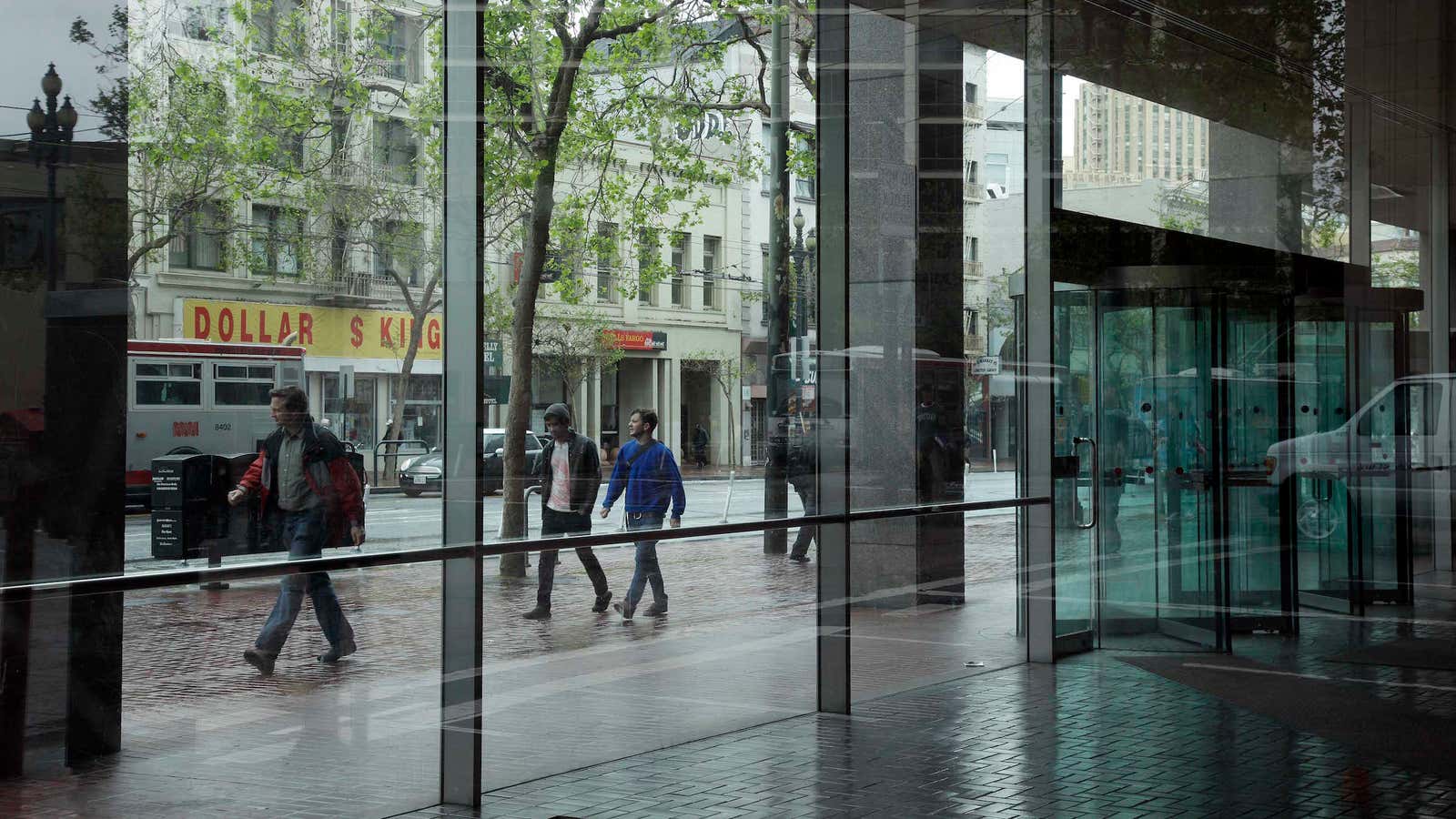With the rise of flexible working schedules, the freelance economy, and video conferencing, more Americans are getting their jobs done without ever heading into an office, according to new data from the American Time Use Survey released by the Bureau of Labor Statistics. Among all workers, 23% report spending all or part of their day working from home. That’s up from less than 19% in 2003, the first year for which there’s comparable data.
The trend is most pronounced among people with bachelor’s degrees, which makes sense since they are more likely to have traditional office jobs. Last year, 39% of the working population with a bachelor’s reported working at home. That compared to only 17.5% of those with some college or an associates degree, and 13.8% of those with just a high school degree:
The percentage of people with bachelor’s degrees who reported not going to an office at all reached the highest point since data was collected. However, the increase was not enough to account for the overall rise in people reporting working from home. The difference could be explained by a rise in flexible work schedules, and how smartphones and the internet have led to an expectation that people are available at all hours of the day.
For those working in the office, the workday has mostly stayed steady at around eight hours. However, time working at home hit its highest point ever at 3.1 hours a day, up from a low of 2.3 hours in 2005. Overall, average work hours are up to their highest point since the 2008 recession.
Some of these shifts likely come from the increased usage of freelancers. But it also appears more people are splitting their work time between home and the office, and likely feeling pressure to do so. For some, notably working mothers (paywall), it’s a way to balance work and family life. Others find it a growing source of stress.
While time use data tends to fluctuate a bit—as can be seen in the charts—the overall trends are pretty clear: More work is being done at home.
But for all the positives of flexible and remote work, it’s worth noting that it can come with a stigma. People that take flexible accommodations can pay a career penalty, and may be less likely to be promoted.
